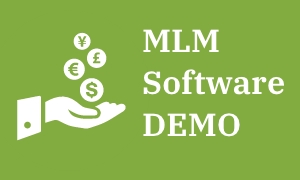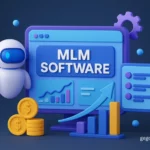In the rapidly evolving landscape of direct sales, having robust and versatile software is crucial for businesses to stay competitive and maximize their potential. Direct sales software needs to seamlessly integrate multiple functionalities—from managing complex MLM structures to supporting dynamic social commerce activities. For developers, this means creating a solution that is not only scalable and secure but also user-friendly and capable of handling the diverse needs of modern direct sales enterprises. The following 20 key requirements outline the essential features and considerations that should guide the development of such software, ensuring it meets the demands of today’s market while remaining adaptable for future growth.
1. User Authentication and Authorization:
– Implement robust user management, including role-based access control, multi-factor authentication, and secure password storage.
2. Scalable Database Design:
– Design a database schema that supports hierarchical structures for MLM, including genealogies, member levels, and commissions.
3. Responsive UI/UX Design:
– Ensure the application is mobile-friendly with responsive design principles to provide a seamless experience across devices.
4. Customizable Commission Structures:
– Develop flexible commission calculation modules that can accommodate different types of compensation plans (binary, matrix, uni-level).
5. Integration with Payment Gateways:
– Support integration with multiple payment gateways to handle transactions, payouts, and subscription renewals.
6. Real-Time Analytics and Reporting:
– Provide real-time dashboards and reporting tools to track sales, commissions, user performance, and other key metrics.
7. Product Catalog Management:
– Implement a comprehensive product management system with support for inventory tracking, pricing, discounts, and promotions.
8. Affiliate Tracking and Management:
– Develop tools for tracking affiliate activities, managing referral links, and calculating affiliate commissions.
9. Social Commerce Integration:
– Enable social media sharing and integration to allow users to promote products through platforms like Facebook, Instagram, and WhatsApp.
10. Laravel Framework Utilization:
– Leverage Laravel’s ecosystem for routing, authentication, and database management, ensuring code is maintainable and scalable.
11. Multi-Language and Multi-Currency Support:
– Support localization features to cater to global users, including language translations and currency conversions.
12. Automated Marketing Tools:
– Include features like email campaigns, SMS notifications, and push notifications to engage users and drive sales.
13. E-commerce Features:
– Integrate a shopping cart, checkout process, and order management system to facilitate online sales directly through the platform.
14. Secure Data Handling and Compliance:
– Ensure data security with encryption, GDPR compliance, and regular security audits to protect user information.
15. API Integrations:
– Provide RESTful APIs for third-party integrations, enabling connections with CRM systems, accounting software, and other external services.
16. Performance Optimization:
– Optimize application performance for high traffic, ensuring fast load times, caching, and database query optimization.
17. Event-Driven Architecture:
– Implement event-driven architecture to handle asynchronous operations like commission calculations, notifications, and payouts.
18. Customizable User Dashboards:
– Allow users to personalize their dashboards with widgets, KPIs, and reports that matter most to them.
19. Product Promotion Tools:
– Provide users with tools to create and share promotional content, banners, and product showcases across multiple channels.
20. Customer Support and Helpdesk Integration:
– Integrate helpdesk and customer support features, including live chat, ticketing systems, and knowledge bases for user assistance.
Developing effective direct sales software requires a comprehensive approach that balances technical excellence with user-centric design. By focusing on these 20 key requirements, developers can create a solution that empowers businesses to manage their sales operations efficiently, engage users through social commerce, and support a thriving affiliate network. Leveraging the power of the Laravel framework, alongside a deep understanding of MLM dynamics and modern web application principles, ensures that the software not only meets current needs but also positions itself as a scalable and flexible tool for future business challenges. In a world where digital sales strategies are pivotal, well-designed direct sales software is the backbone that supports sustained success and growth.













